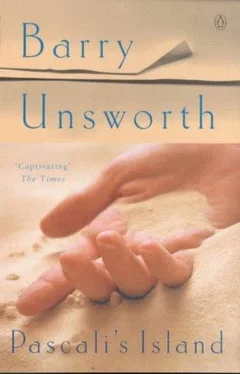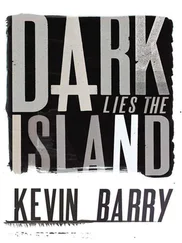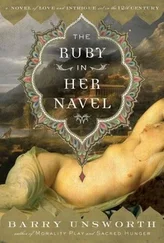'If I were you,' Mister Bowles said suddenly, 'I'd get clear of this island as soon as I possibly could. As soon as you get the money, I mean.' He did not look at me as he said this, being intent on the eye sockets. There were no eyes, Excellency -below the lids narrow vacancies.
'Yes,' I said, 'I was intending to go to Constantinople.'
'Why there?' he said. 'That's the last place I would want to go just now. You won't be able to stay here, you know. There's nothing for you to do here. Not unless you change your profession, or arrange for a new paymaster.'
'Why do you say that?'
'The heyday of spies is over,' he said. 'Abdul Hamid is finished. The Macedonian regiments are in the capital. They are welcomed everywhere. Enver Bey and Talat are in charge now.'
I looked up from my work, at his serious face – he had spoken without mockery – and then up at the blinding purity of the sky. The shrilling of cicadas from the slopes all round us seemed at this moment to rise to a crescendo that was then impossibly sustained.
'Rumours,' I said. Even at this moment of shock, my mind continued to assemble evidence against him. It must have been from Lydia that he had got this. He had seen her then, and recently. The velvet material, I was suddenly convinced, had been hers. Quite unexpected and unbidden there came into my mind a recollection from the evening of his arrival, when I had introduced him to Lydia, and seen her hand engulfed in his…
'More than a rumour, old boy,' Mister Bowles said, stepping back from the statue a little. 'It is absolute fact. Why do you want to go to Constantinople anyway? I say, come and stand over here, and have a look at him now.'
I did as he said. Although I was still shaken by this curt announcement of your downfall, the appearance of the statue drove everything else from my mind. He stood there, a young man of possibly twenty or so, taking a slight step towards something. His head, chest and arms gleamed in the sun, dark olive colour, with glints of gold. The tarnish of ages still lay on the bronze, but the oil had glossed and darkened it. There was no visible flaw in any of the surface we had cleaned. The gleaming torso contrasted with the dull earth colour below, giving him the look of someone struggling out into sunlight – an accidental effect, but deeply impressive. Above all it was the tension within the movement of the body itself, something unresolved, disturbingly ambivalent, that gave the work its life and distinction. The form expressed a subtle conflict between advance and recoil. It was there in the raised, slightly smiling face, in the squared shoulders, the tentative gesture of the arm; in the slight forward step and the withheld trunk, which could now be seen to be slightly turned from the direction of the walk, a further torsion of reluctance. With some marvellous instinct the remote creator of this youth had found a form for awkwardness and grace together.
'That is no copy,' Mister Bowles said. He turned to me an excited face. 'He was already old when the Romans were here,' he said.
'I don't know,' I said. 'He is certainly very beautiful.' I was moved, Excellency. Not only by the statue itself but by the way in which Mister Bowles included me in his emotion. Perhaps because of this, perhaps because I intended to inform on him, a great urge to confide in him rose up in me. 'You asked me why I wanted to go to Constantinople,' I said. 'I'll tell you.'
And I did tell him, told him everything, as we resumed the work – lower down now, along the flanks and the groin. Told him of the long silence in which I had lived, the neglect of your officials, and now the hostility of the Greeks. 'I kept no copies, you see,' I said. I told him how the money had come through every month, never varying; and of my wish to visit the archives, bribe my way to repossession of the papers. He listened seriously, though without looking at me. His hat was pulled low against the glare.
'You mean to say nothing has ever happened?' he said. 'Good God. As for the money, I have heard of other cases. You know how inefficient the bureaucracy is. They would just go on paying you.'
'But twenty years,' I said.
'They've been going downhill for ten times as long as that, Pascali. No, there is no machinery for countermanding anything. Some clerk made an order on the bank, and the money keeps on coming. Nobody knows why, so nobody stops it. The chap who arranged it is probably dead. It's not likely he kept any records anyway. Or if he did they would be in such a state of confusion that no one…'
He paused, his saturated velvet on the slope of a thigh, and looked across at me. 'Just imagine the paper-work involved,' he said. His pale eyes looked seriously and directly into mine. I thought I detected in them a look of pity. 'Just imagine the weight of it,' he said. 'The whole system is clogged with paper. Have you any idea how many informers there must be in the Ottoman possessions? The Sultan has been paranoid for years, you know. It is common knowledge that there are more spies than police in Constantinople. Do you really suppose those fellows in the Ministry have a filing system? No one reads anything, Pascali.'
Because I was frightened by the implication of his words, I took refuge in sneering. 'Your own métier is at an end, if all you say is true,' I said. 'Have you considered that? I mean, you depended on this system didn't you? The swamp has been your habitat.'
'Swamp?' he said.
'Yes.' I was thinking of the flower that was now spreading its petals against the roof of my poor demoralised brain. 'The Empire is a swamp,' I said, 'and if you don't mind my saying so, we both belong in it, together with the orchids and snakes.'
'I don't know about that,' he said. He was embarrassed by my metaphorical language. Rather over-doing things, he probably thought. He himself never used figures of speech. 'In any case, I shall be moving on, you see.' He raised his eyes to the statue's face. 'This is a turning point in my life,' he said. 'Do you realise how few original Greek bronzes there are in existence?'
'I thought you were intending to turn it over to the authorities tomorrow.'
'Oh, yes,' he said. 'I am, of course. But just the association of the discovery with my name will be enough.'
He was lying to me, Excellency. I knew it then, beyond doubt. Knew it in bitterness and desolation. He would never give the statue up. Had he not been 'directed' to it? He would go on, as I had always dreaded, follow his dream, while I would be left behind in this place, penniless, among enemies, without an occupation even. I could not endure it. I knew then, finally, what I must do. My eyes were close to the boy's flank. They filled with tears, through which the bronze glinted, became iridescent.
'It is surprising,' Mister Bowles said, in a different, more measured voice, 'well, at least it always surprises me, how Greek sculpture provides us with a sort of universal paradigm, a model for all human affairs.'
I looked up at him from my crouching position. He was standing with his back against the hillside, head turned to look upwards along the slope. My eyes were still slightly blurred, and as I looked up at his face in profile, his features had a strange outer edge of light, as if the area immediately adjoining his face derived a radiance emitted from the surface.
'How do you mean?' I said.
'Well, in the very early period, the seventh and sixth centuries, the figures were not really individualised at all. It didn't matter who they were. They were images of man as such. They were marvellously human, but they were not distinguished one from another. Just a celebration of collective humanity, you know. Then you got the breakdown of that sort of mythical unity in the classical period, when there was an awakening to personality, to individual responsibility. It was still monumental – to begin with at least. I mean there was harmony and balance in it. The weight was in the centre. But the unity was achieved in the individual work, not so much in the expression of a collective attitude. As in the sculptures of Phidias, for instance. Perfect unity of form and spirit. But it didn't last long you know. Just that perfect balance, for a generation only, not much more anyway. While it was actually happening, the conditions that made it possible were being undermined. In the Greek state itself things were beginning to break up. There was a lot of conflict – between the individual and the state, secular and religious claims, and so on, and as you come down into the fourth century this shows itself in the sculptures. The centre of gravity is displaced from the middle. The figures are not so secure, not so self-contained. There is more differentiation, more insistence on naturalistic detail. Then in the Hellenistic period, you know, after about three hundred, the whole process degenerates into drama and decoration. Instead of that clear arrangement of axes, you get tricks of opposing rhythms. The forms no longer reach out, they turn around their own centre. That is the finish of it. The whole art becomes decadent, and so does the society, of course.'
Читать дальше











